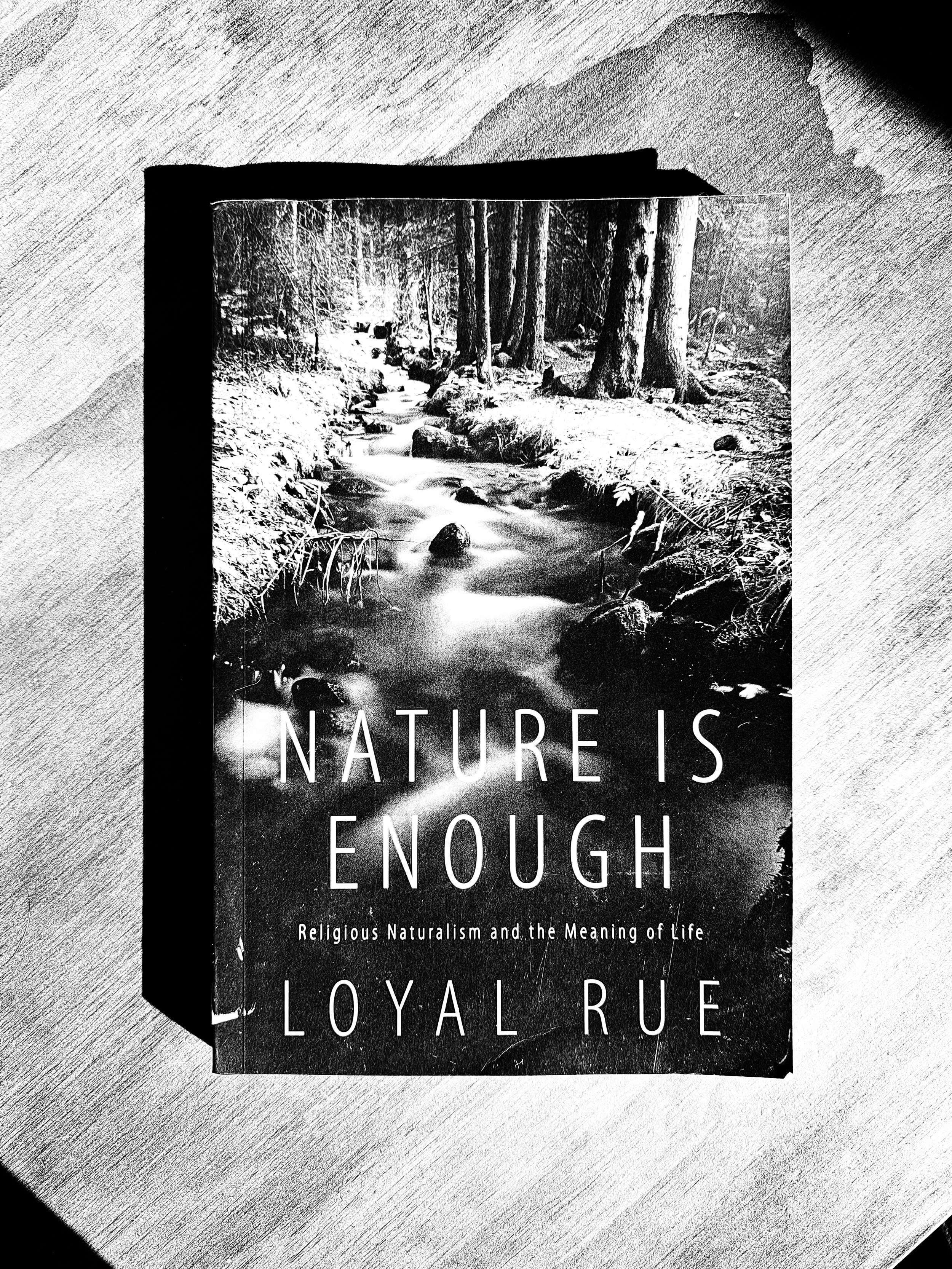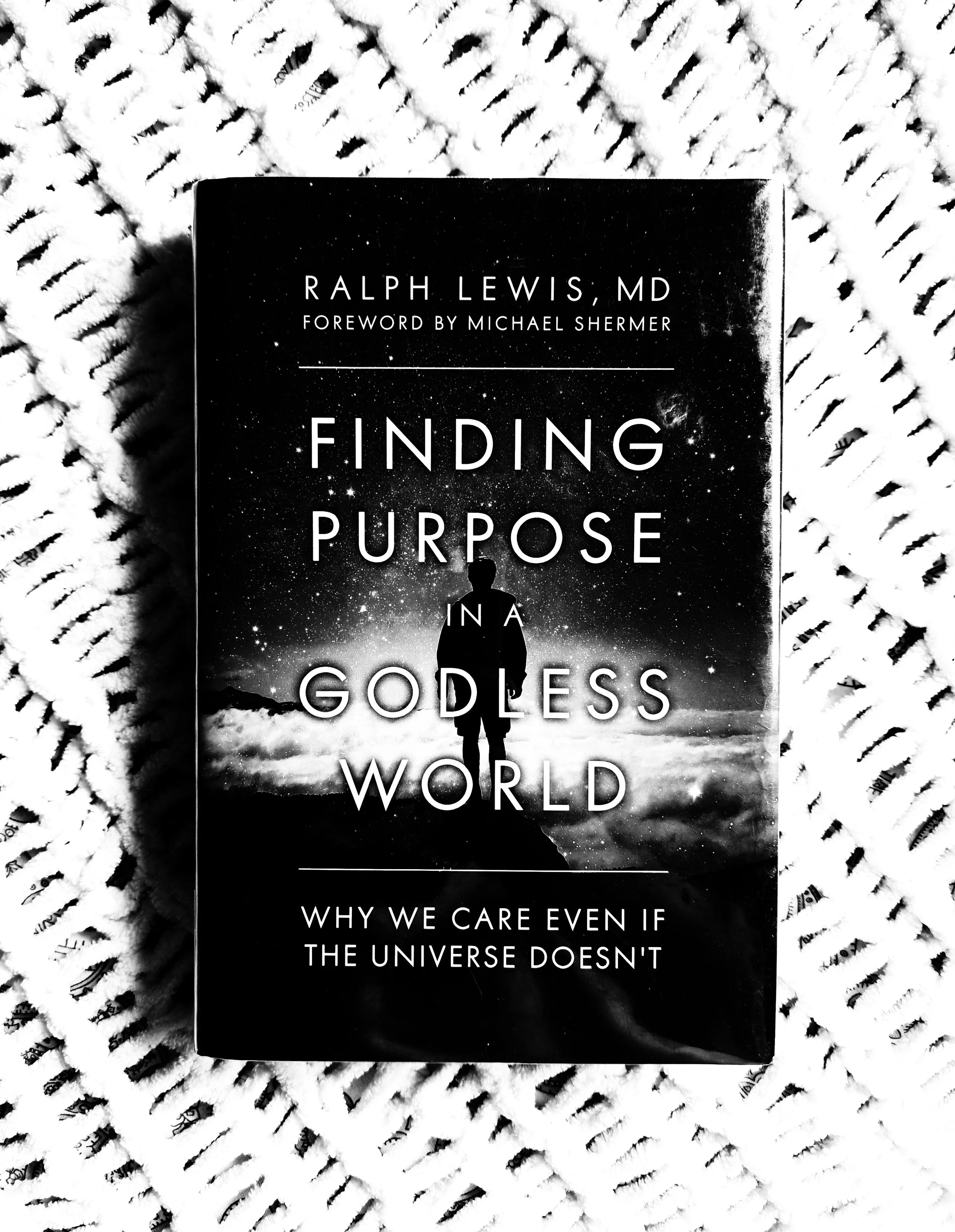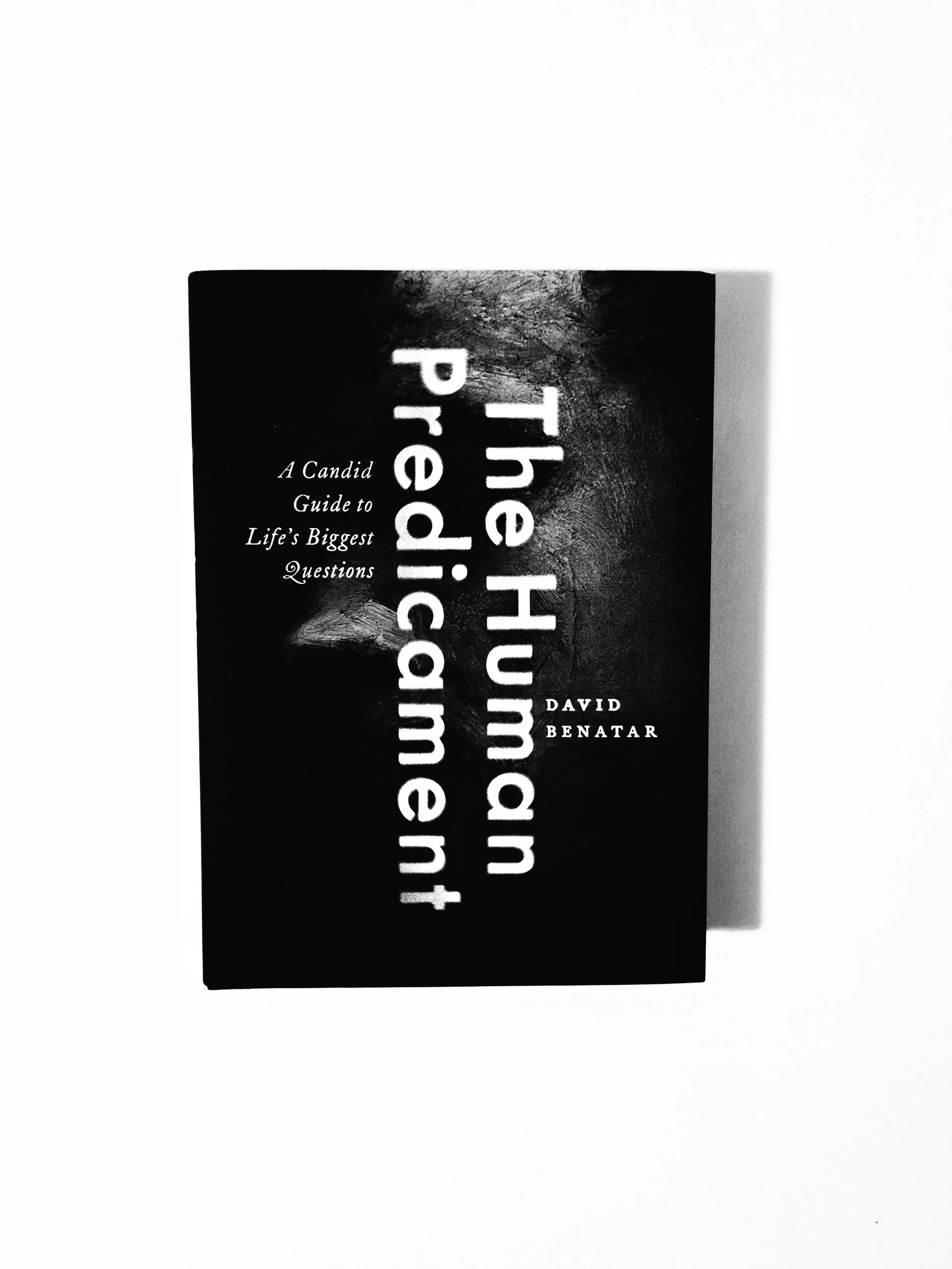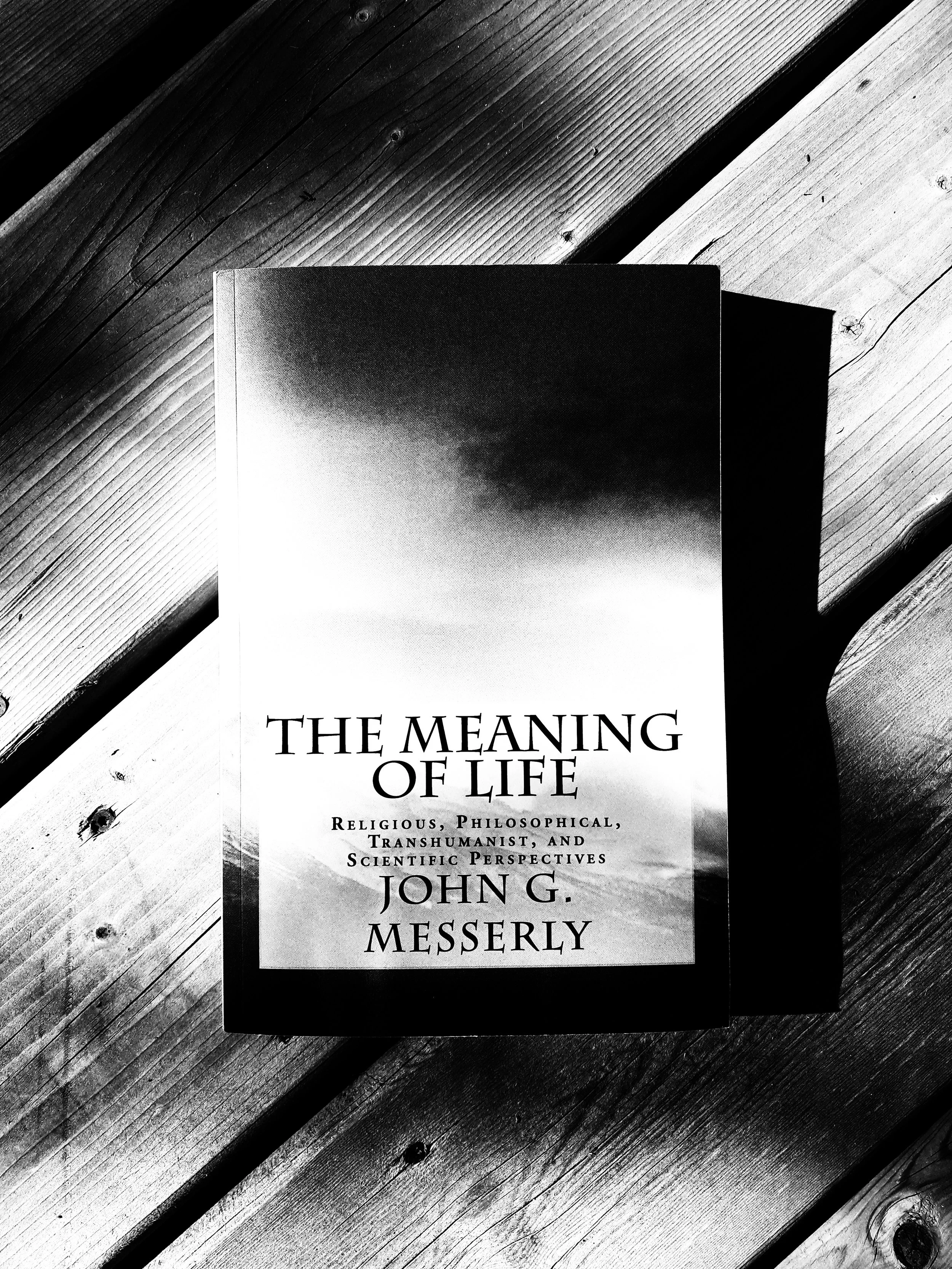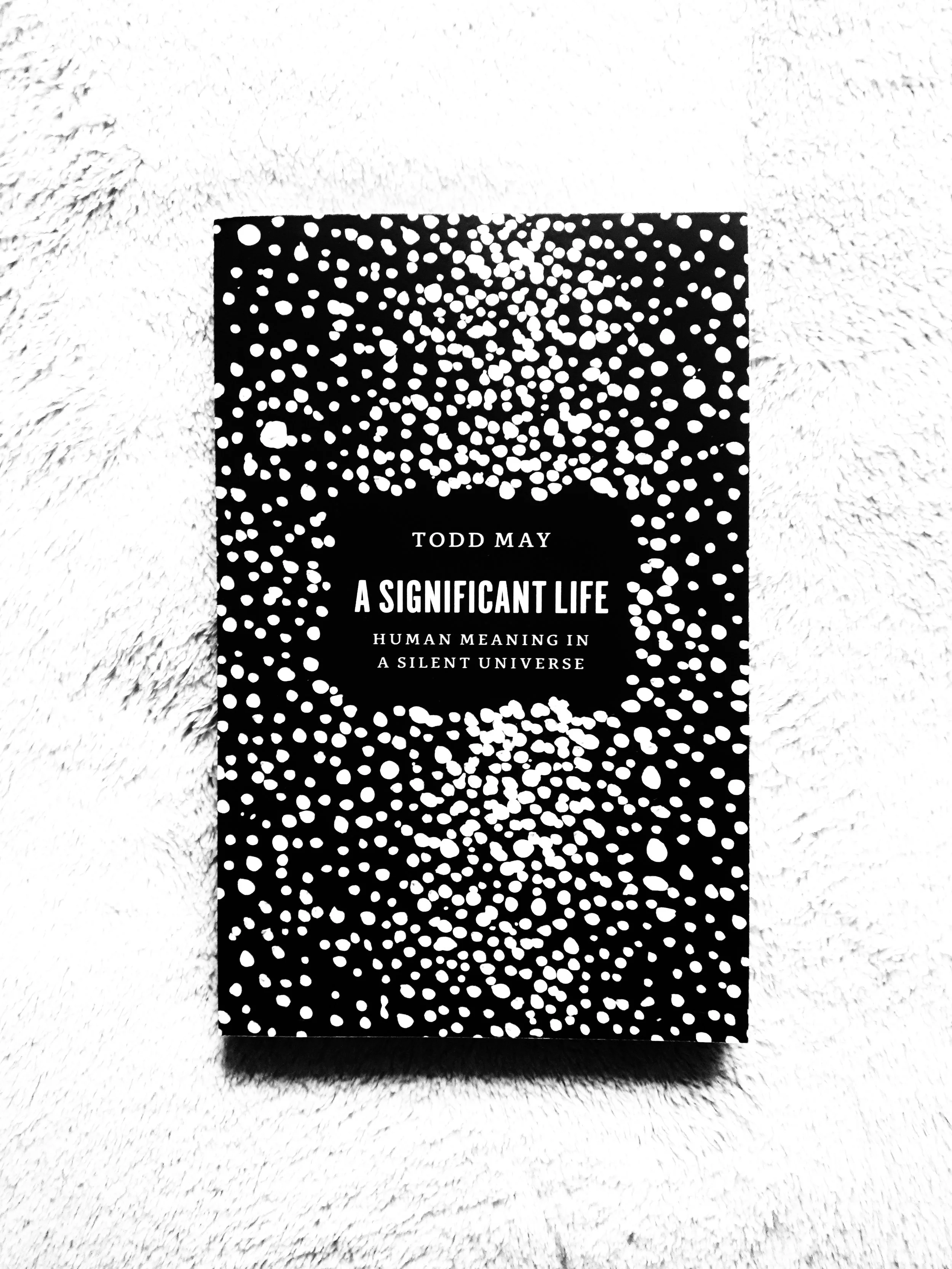Books about Meaning and Purpose for Atheists
What’s the meaning of life for atheists? Is meaning something baked into the fabric of the world, or is it constructed by human minds? Do atheists believe in cosmic purpose, or is that wishful thinking? Here are 8 non-religious books that explore questions of purpose and the meaning of life.
1. The Meaning of Life (John G. Messerly)
“Our desires appear unlimited. And presuming that we fulfill these desires, we still face pressing philosophical concerns: What is real? What can we know? What should we do? What can we hope for? And, most importantly, what is the meaning of life in a world that contains so much suffering and death? This is the central philosophical question of human life.”
You may shun “meaning of life” questions and say you live because it’s instinct, or self-preservation, but this only explains why you do go on, not why you should go on. In The Meaning of Life: Religious, Philosophical, Transhumanist, and Scientific Perspectives, John G. Messerly analyzes the essays, books, and philosophies of nearly 100 famous thinkers to answer the most significant questions we have about meaning. This book is a collection of modern and historical answers to the question “What is the meaning of life?” from nihilists, agnostics, theists, and atheists. The nihilists believe life is meaningless and either begrudgingly accept this or affirm it as something to celebrate. An agnostic claim may be that the question of meaning is unintelligible, or the question is intelligible but probably unanswerable. Believers think meaning is prescribed by a supernatural entity. And an atheist/naturalist response is that meaning can only be found in the natural world, with meaning either discovered (objective) or created (subjective). I feel confident saying that in this book you will find the most thorough review of all possible answers to your meaning-of-life questions.
[What is the meaning of life? Answer: depends who you ask.]
2. Finding Purpose in a Godless World (Ralph Lewis)
“To gain a more realistic picture of how the world really is, we need to bypass our subjectivity, our intuitions, our cognitive biases, our fears, and our wishful thinking. The most reliable way to do this is to apply the scientific method. Once we consider the relevant scientific evidence, it becomes clear that the idea of a designed, purposeful universe is a human construct. We also come to see plainly that there is no basis for believing that religion is the source of purpose, morality, and meaning. Instead, religion can be understood as having incorporated these natural motivational and social dispositions . . .”
We search for cosmic purpose and want supernatural assurance because we are pattern-seeking, agent-seeking creatures… worried apes who want the world to be predictable and the universe to be benevolent. In Finding Purpose in a Godless World: Why We Care Even if the Universe Doesn't, psychiatrist Ralph Lewis explains why these desires are natural, but also why they are fanciful, a wishful thinking that protects us some but also deceives us plenty. But we are not without purpose, because to be alive is to create purpose and meaning – these emergent phenomena are birthed into the cosmos by our brains. And while we may not have God or a universe suffused with consciousness, we do have each other. The cosmos may not care about us, but we care about each other, and that’s what matters.
[What is the meaning of life? Answer: there is no ultimate meaning, but to be alive is to create your own meaning and purpose.]
3. A Significant Life (Todd May)
“. . . if there is a meaning to our living – or, if our lives are to be meaningful – then we don’t have forever to find it. It is not as though that far coast will keep receding before us, allowing us a century or two to tinker at trifles here or there in the meantime.”
Atheists don’t believe in any God-given meaning, so is meaning a personal construction? Is it entirely subjective? Todd May’s goal in A Significant Life: Human Meaning in a Silent Universe is to demonstrate that a human life can be objectively meaningful, even without God or any cosmic guarantee. (Not to say that there is a universal meaning of life, but that there are more objectively meaningful ways of living). He articulates why even God couldn’t create meaning, but also why meaning can’t be entirely subjective. If it were, we could simply declare our lives meaningful and that would make them so. But this feels unsatisfying because meaning is at least partially objective – it can’t be summoned by an individual or collective whim. May thinks what makes a life more meaningful is one lived according to certain narrative values, values like courage, adventurousness, integrity, creativity, and curiosity. Because our lives are trajectories, it seems fitting that our standard of meaningfulness should be found in the themes of those trajectories. Narrative values are thematic expressions of living that make a life feel more meaningful, and while these values are not underwritten or ratified by the cosmos, neither are they arbitrary, capricious, or subjective.
[What is the meaning of life? Answer: ask instead: “How do I make my life more objectively meaningful?” You do that by living according to narrative values.]
4. The Brain and the Meaning of Life (Paul Thagard)
“If you want to reduce my book to a slogan, it could be this: The meaning of life is love, work, and play. A more nuanced summary would be better: People’s lives have meaning to the extent that love, work, and play provide coherent and valuable goals that they can strive for and at least partially accomplish, yielding brain-based emotional consciousness of satisfaction and happiness.”
Paul Thagard thinks that to find the meaning of life we need to look up… to the brain. If you want to know what is meaningful, what is valuable and what matters, you don’t need God, you need neuroscience. In his book The Brain and the Meaning of Life, he explains that it’s emotions that make things matter, that make something feel valuable to us, and emotions are primarily generated via the cognitive appraisal of goals… positive emotions when we’re pursuing and achieving the right goals, and negative emotions when we’re failing or pursuing the wrong goals. A meaningful life, then, is one spent pursuing the right goals, and Thagard defines these as goals we evolved to attach a positive cognitive appraisal to, goals that intrinsically matter to us because they satisfy some vital need (and are therefore objectively valuable). The three vital needs outlined by Thagard (and originally stated by psychologists Edward Deci and Richard Ryan) are relatedness, competence, and autonomy. The need for relatedness is satisfied by love, the need for competence is satisfied by work, and the need for autonomy is satisfied by play (doing something for our sheer pleasure of doing it). Because goals centered on love, work, and play satisfy our core psychological needs then, they are intrinsically valuable to us, they are the right goals – we evolved to feel positive emotions when pursuing and achieving them, and this is what makes our lives meaningful.
[What is the meaning of life? Answer: love, work, and play; our brains evolved to attach positive cognitive appraisals to these goals because they fulfill vital psychological needs.]
5. Meanings of Life (Roy Baumeister)
“The absence of a broad, general, integrated philosophy of life or unified life story is not a major obstacle for successful living. . . . people do not need to have all their ultimate philosophical or religious questions resolved . . . They do, however, seem to need life to make sense in other ways. One central aim of this book will be to examine these needs for meaning – that is, the ways in which people do seem to require their lives to make sense.”
In Meanings of Life, Roy Baumeister outlines four “needs for meaning,” which are: purpose (feeling like our activities are oriented toward worthwhile goals), efficacy (feeling strong, capable, and in control), self-worth (feeling good about ourselves and that we are regarded positively by others), and value (feeling our actions are justified and legitimized by some shared value system). People who can find purpose, efficacy, and self-worth, and align with established value systems, will feel their lives are meaningful. Meaning in life is not some exotic thing, it’s just meaning in the ordinary sense. When we ask, “What is the meaning of a sentence?”, we’re asking about the intent of the sentence, what it conveys, if it’s coherent, if it makes sense within some context. When we ask, “What is the meaning of my life?” we’re asking the same… “What was the intent of my living, did it convey something, was it coherent, to what context did it belong?” In short, “Did my life make sense?” The extent to which you feel it did will depend on how much purposiveness you had, how successful you felt in achieving your goals, how much self-worth you possessed, and how much all this was anchored by some value system.
[What is the meaning of life? Answer: meaning is something we impose on the world, and to feel our lives are meaningful we need purpose, efficacy, self-worth, and value.]
6. The Belief Instinct (Jesse Bering)
“. . . the real mystery lies not in why we are here on this earth, each as distinct individuals; instead, the real mystery is why this purpose-of-life question is so seductive and recalcitrant in the face of logical science.”
Jesse Bering is not interested in what the meaning of life is, he’s interested in why we have the intuition that there should be any meaning of life in the first place. The Belief Instinct explores two contributing factors: theory of mind and teleo-functional reasoning. Theory of mind is our capacity to understand the mental states of other sentient beings, to identify agents in the world and then predict what those agents (minds) are thinking. Teleo-functional reasoning is our baseline reasoning that things exist for a purpose. If you ask kids what mountains are for, they’ll say, “So that animals have something to climb on.” Even secular scientists will tell you that the ozone layer exists to protect us from UV rays. Neither mountains nor the ozone exist for anything because they were not created by an agent with any purpose in mind… they just are. Theory of mind and teleo-functional reasoning are default settings, and our brains are therefore hardwired to overattribute purpose and agency to the world. It’s completely natural to look out into the cosmos and imagine an ubermind looking back, and therefore to examine your life and ask what the purpose of it was and what you were meant for. But while the compulsion is natural, it tells us only that we are compelled to ask the questions, not that the questions have answers.
[What is the meaning of life? Answer: maybe nothing, we just evolved to ask the question and yearn for a satisfying answer.]
(Like this? See also The 7 Laws of Magical Thinking and Supernatural)
7. The Human Predicament (David Benatar)
“We are born, we live, we suffer along the way, and then we die – obliterated for the rest of eternity. Our existence is but a blip in cosmic time and space. It is not surprising that so many people ask: “What is it all about?” The right answer, I argue in this book, is “ultimately nothing.” . . . It should come as no surprise that this is an unpopular view . . .”
David Benatar would agree with Jesse Bering that humans prefer so that causations to because of causations… prefer answers to “why” rather than “how.” Benatar takes this to an insightful conclusion regarding meaning in The Human Predicament. For your life to mean something, you must want it to mean something to someone… some agent or “mind” that can evaluate it and deem it significant or insignificant. Benatar agrees that life can have small, local meanings… because your life can mean something to you, or to the people close to you. Unfortunately, most lives don’t mean or matter much beyond this. Most of us won’t mean anything to our nation, or to all humans, and we’ll never mean anything to the cosmos because the cosmos isn’t alive… without agency, without a mind, the universe cannot regard your life as meaningful, cannot regard your life as anything at all. It’s this cosmic meaning Benatar thinks we yearn for, but that will ultimately go unsatisfied because God does not exist, and our lives remain small and insignificant. Even more depressing, whatever small meanings our lives do have are thwarted by death.
[What is the meaning of life? Answer: there is none, the most you can probably hope for is to mean something to the people close to you.]
8. Nature is Enough (Loyal Rue)
“The universe as a whole is a meaningless affair, the bus is going nowhere. But cosmic nihilism does not entail that all attributions of purpose are necessarily unjustified. The bus may be going nowhere, but this doesn’t mean that occupants of the bus cannot go to and fro filled with genuine goals. The fact – if it is one – that the universe is a meaningless affair does not reduce my life to a meaningless affair. It simply means that my purposes have no cosmic significance. But why should that deflate my quest for a meaningful life? Do human ends have to serve cosmic ends in order to be genuine?”
Loyal Rue is an atheist and a religious naturalist, someone who takes religious sensibilities (like devotion, duty, and reverence) and directs them toward nature – nature as the one sacred, supreme, and sovereign thing – but who holds no belief in supernatural entities. In Nature is Enough, he suggests that a meaningful life requires our active participation in moving toward purposes that are morally good, that are achievable, and that we’ll also derive pleasure from achieving. But is there any objective meaning of life… or is there only meaning in life? Rue agrees with the materialists that all meaning comes from physical matter, but he argues that meaning cannot be reduced to it (in this sense, he’s an emergentist). He agrees with the constructivists/relativists that almost all meaning is invented by human minds in our pursuit of proximate human goals and values, but he adds an important qualifier: there are some meanings that are inherent, essential, and ultimate… there are some meanings that are objective and fundamental. Here’s his case: because life comes with its own built-in purpose, which is to continue living, the continued viability of life on this planet is an ultimate purpose, is the ultimate meaning of life. It’s not cosmic, eternal, or absolute, but it is immanent and non-contingent. Further, the penultimate human goals of personal wholeness and social cohesion (those things baked in as our own sapiential survival requirements), are penultimate purposes and penultimate meanings (close runners up to the ultimate meaning of life). These purposes of viability, individual flourishing, and social harmony were not given to us by God, but they are scripted in all the same.
[What is the meaning of life? Answer: a life dedicated to life.]
Some atheists will argue that there are objective meanings of life, that meaning is something inherent, intrinsic, and in the world. Others will argue that meaning is only ever subjective, that meaning is contingent, contextual, and constructed… that meaning is in our minds. Still others will state with pessimism that meaning does not exist, or if it does it’s only in amounts insufficient to sate our longings. Whether you think meaning is inherent, invented, or emergent, whether you think it’s discovered, created, or specious nonsense, you will find secular company.
(See also Books about Death for Atheists and Books about Spirituality for Atheists)
